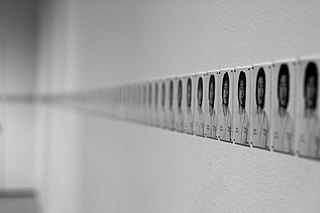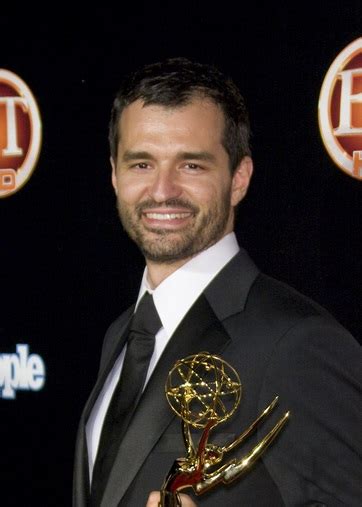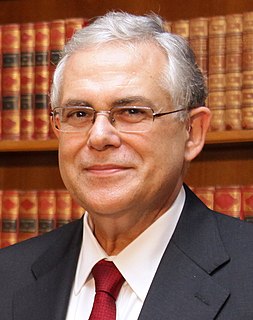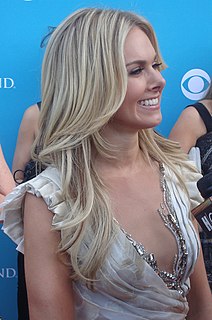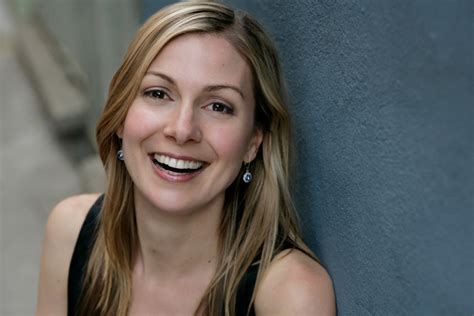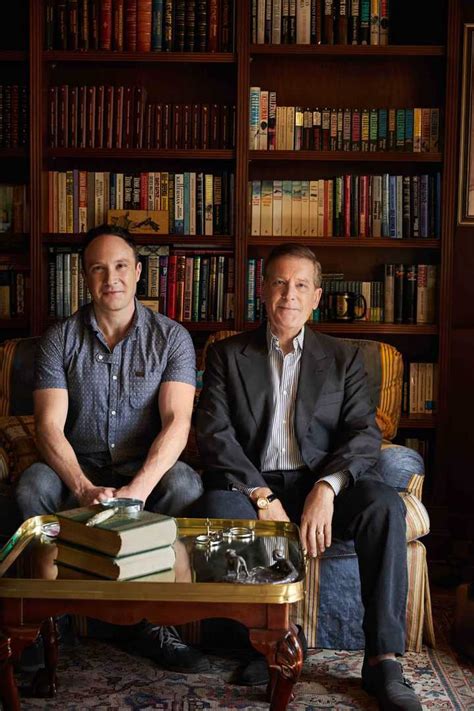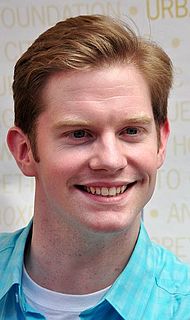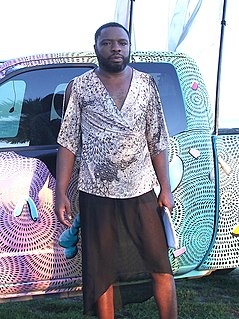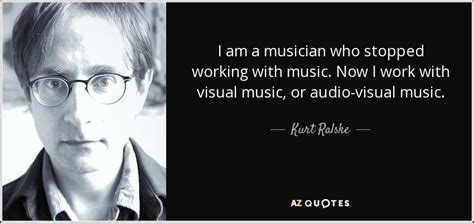A Quote by David Salle
When I first came to New York, I knew some painters older than myself. I was kind of the kid who was allowed to hang out with them. That is more the way people talked in those days, it was perfectly normal to question a work's fundamental premises and its fundamental visual manifestations. It was perfectly okay to say, "Oh, that should have been red" or something like that. In a funny way, the way artists talk about art is to de-privilege it.
Quote Topics
About
Allowed
Art
Art Is
Artists
Been
Came
Days
First
Fundamental
Funny
Funny Way
Hang
Kid
Kind
Knew
Like
More
Myself
New
New York
Normal
Oh
Okay
Older
Out
Painters
People
Perfectly
Perfectly Normal
Premises
Privilege
Question
Red
Say
Should
Should Have
Should Have Been
Some
Something
Talk
Talked
Than
Them
Those
Visual
Way
Work
York
Related Quotes
I know I am a human being. I can give myself to one year for a project. That is why I say I'm primitive in the way I work, especially compared to most artists. I came to New York in 1974, knowing that it is the art center of the world. But I didn't go to find people for my work. I do the work, and the people come to me, and I learn from them. That has always been my approach - to do the job first and then to respond to it after I finish and learn what people think about it. That's how I develop, and I'm more of an outsider in that way.
Art movements are always linked to some kind of turmoil. We can look at history and see that [political turmoil is] fertile ground for art. I also think that it gives artists something, a way of kind of processing. My friends and I have all been super motivated to work and to do the work that we need to and want to and think should be in the world. Hard times are really a fire under your ass to prioritize and think, "Okay, how can I challenge myself to put something in the world that wasn't there that can reach other folks and help them to process"?
I don't come from a flashy film background. TV's been a great home for me, and being able to do that work kind of unnoticed, and not putting that out in the foreground was perfectly fine for me. I just continue to want to make sure that that's what it's about. I think when you start spinning out on what other people are doing and trying to chase something, you're really on a one-way ticket to things not working out the way you want them to.
New York cops are very specific in terms of the way they talk and the way they handle themselves. All these cliches that, as an Englishman, I thought were from a bygone era or were a bit of poetic license with cop shows - the more you hang out with them, the more you realize how real that jargon is.
I'm a New York person. I've never gone out of the way to speak to the press to change my persona - I probably should have. It's too late now. But when I first started I was like, "I'm gonna stay this way. I'm gonna be this way," and I continued to. I probably should have sugarcoated it like, "This is not really the way I am - I'm an actor."
It's about being open to what comes your way. I came to New York and saw 'Spelling Bee.' I said to myself, 'That's the greatest show ever, and I can't believe I'm not a part of it.' I felt the only way I'm going to get to be a part of something that good is to live in New York. So I moved to New York and ended up in 'Spelling Bee.'
Some people are still very romantic! I mean, those funny vampire films are super romantic, and I don't think that's bad. It means there are a lot of people who still believe in love in a weird way. Okay, it's a cheesy way, and I guess if you think about it, you're like, "Wait, you can love them as long as they're dead?" Maybe that's the point. Maybe it's more twisted than I thought. You can love but you can't age.
Expression is never considered a given, and it is in fact maybe not what's most interesting about making art. Making art, since 1960 or something, is many things: it's a way of doing philosophy, it's a way of opening a dialogue, it's a way of putting a fact or a question out into the world, or a way of drawing people into new relationships, or a way of interrogating history. It's all these other sorts of strategies or techniques or processes that are really interesting and really valuable.
I was a child but weirdly uninhibited. I talked to people and inserted myself in all kinds of absurd situations. I think some of those life experiences influenced me in terms of the main character of The Flamethrowers. But for the parts where the community of artists are speaking above her level of participation, that probably came more out of my experience of being in New York in the '90s as an adult.

